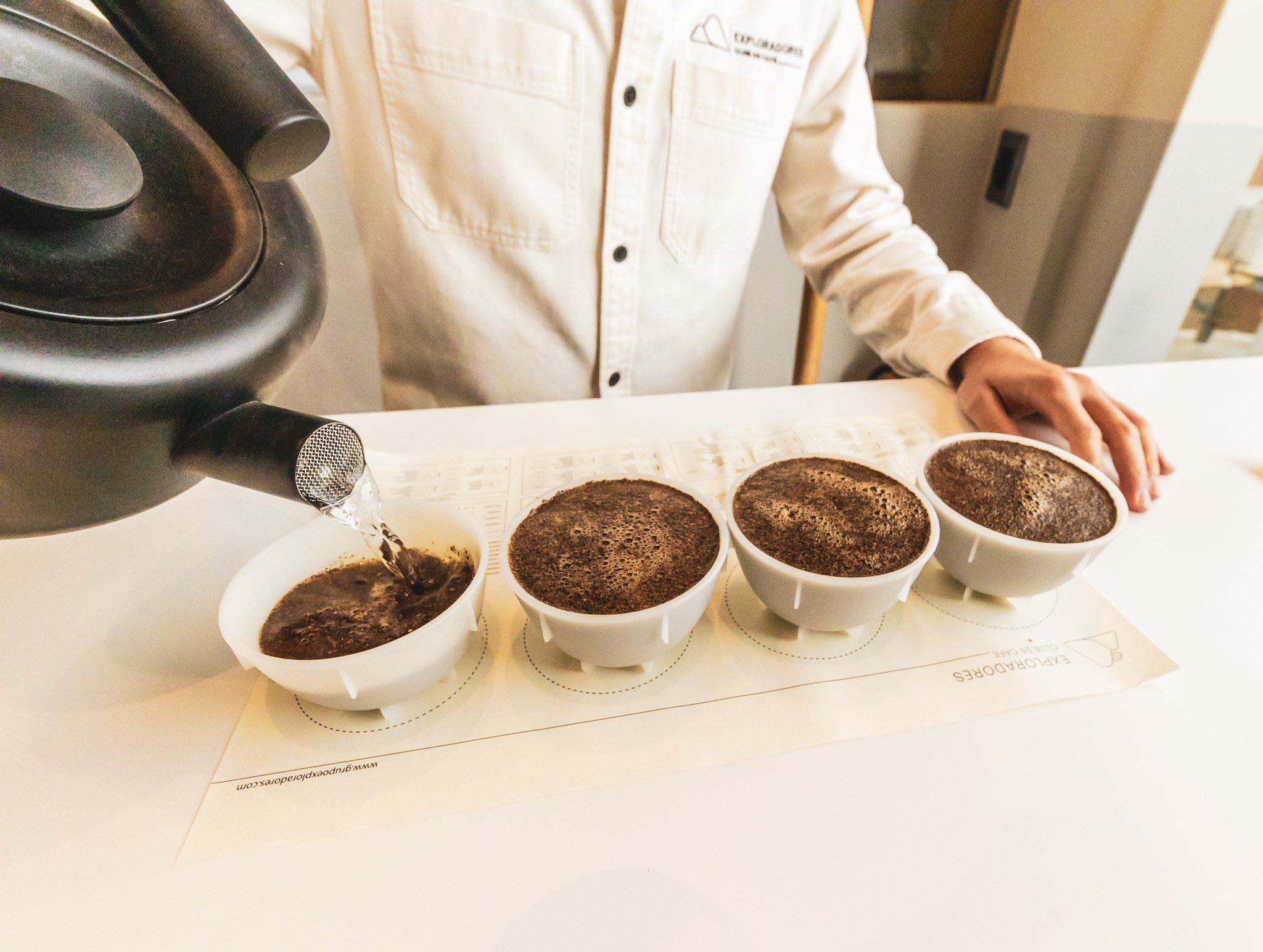
Education & Science
We believe education is the key for solving many challenges and coffee is no exception. Educated consumers will demand quality which at the same time will reward the farmers who invest in their craft. We give different types of courses like cupping, espresso and roasting in our facilities in Mexico City. We also contribute to coffee farmers education by connecting them with researchers that give scientific evidence of the farmer’s processes.
Our coffee tasting table is open to the public at Club de Café in Mexico City.
We invite anyone interested to join a casual tasting session for free. You don’t need to have any experience or knowledge of coffee.
The reason behind coffee-tasting
It's the quickest and most consistent way to sample various coffees at once.
It helps us understand the flavors imparted by the origin, variety, and processing
We can assess each coffee's potential to determine its roasting profile.
It's an essential part of quality control for the production lot.
And, ultimately, we aim to listen to the bean and let it tell its story
Collaboration with PhD Itzel Morales
Coffee DNA Sequencing
PhD Itzel Morales is an Agricultural Engineer, with a master's and doctoral degree in Environmental Science from the Autonomous University of the State of Mexico. She has undertaken postgraduate studies and research at the Federal University of Viçosa and the Federal University of Uberlândia in Minas Gerais, Brazil. She is a member of the National System of Researchers in Mexico (Conahcyt) and has several articles published in scientific journals.
The objective of the research is to contribute to the sustainability of shade-grown coffee socio-ecological systems, by obtaining the characterization of microorganisms associated with soil and coffee fruits, using Next Generation DNA Sequencing. The data generated by DNA sequencing provide new insights into microbial functions and their potential for the development of more sustainable coffee farming practices. It allows for a better understanding of coffee terroirs, adaptation to climate change, and efficient crop management. This can help minimize the use of chemical fertilizers and pesticides, aid in the creation of biofertilizers, and identify starter cultures to enhance the quality of coffee processing.
Contact PhD. Itzel Morales: @etizel114
Without science, processes are blind attempts to improve quality.
Science helps us be consistent and understand the success behind trial and error. We help coffee farmers get closer to researchers to understand and get over their agronomical hurdles as well as improve their post-harvest techniques. We have also helped our coffee farmers understand the repercussions their actions have on the cup by giving away a sample roaster and teaching them how to cup. We have learned that when farmers cup they know the value of their work and stop being price takers and start being price givers.



